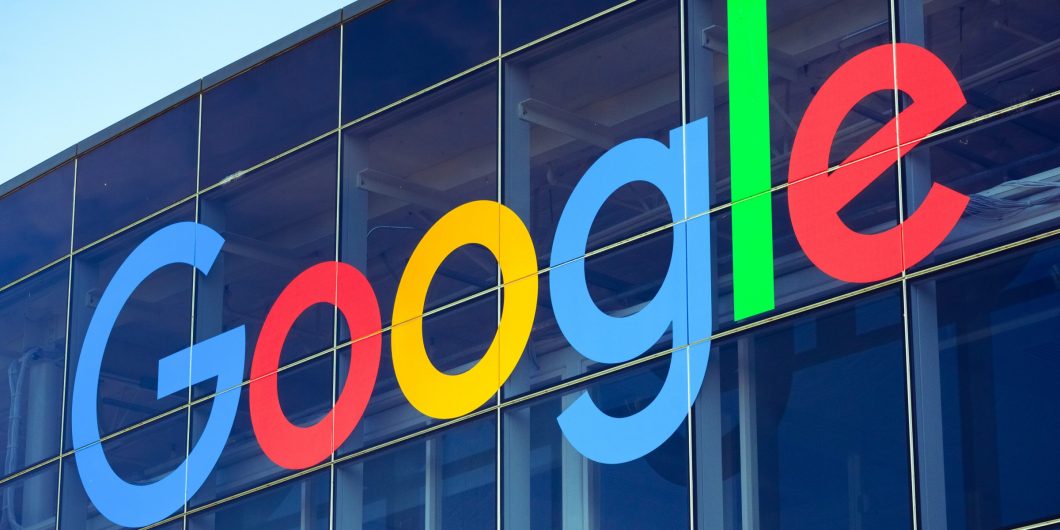Google Gets the Scalpel, Not the Sledgehammer
In 1883, Otto von Bismarck, the brilliant Iron Chancellor of Germany, enacted a law to provide health insurance to German factory workers. Bismarck didn’t care about the law’s policy goals, but he wanted to stem the rising tide of socialism supported by Germany’s Social Democrats.
Perhaps Attorney General Bill Barr has been re-reading his history. A few weeks ago, the Department of Justice filed its long-awaited antitrust lawsuit against Google. The lawsuit approaches Google with a scalpel, rather than a sledgehammer, and at most may result in a handful of minor changes to Google’s business model, rather than Google’s wholesale dismemberment, a goal sought by many progressives. As an added bonus, the lawsuit likely slows progressive momentum to rewrite the nation’s antitrust laws to promote social goals and fuzzy notions of fairness.
Nonetheless, the lawsuit has serious flaws. It misconstrues the search market, flirts with the outdated idea that “big is bad,” and ignores the ease with which consumers can switch to other search options. Nevertheless, if a lawsuit had to be filed—and given the intense bipartisan spotlight on Big Tech, some sort of suit seemed inevitable—this suit’s silver lining may well outstrip its cloud: the lawsuit will allow a review of Big Tech’s business practices in deliberate judicial proceedings, rather than frenzied and politicized congressional hearings.
The Backdrop
For more than a year, Google, Apple, Facebook, and Amazon have been in the crosshairs of both the right and the left, the White House and Congress. The right worries about perceived anti-conservative bias among social media platforms and search engines. The left rages about Big Tech’s size, scope, and overall power and earnings. Months ago, Jared Nadler, Chairman of the House Judiciary Committee, declared that the large tech companies “cannot be allowed to exist in society.”
Against this backdrop, the House Antitrust Subcommittee recently issued a lengthy report that recommends the breakup of Big Tech. Among other changes, the report calls for “structural separations” of each company into its primary component parts, each with a single line of business, presumptively prohibiting these companies from purchasing start-ups, and requiring them to offer equal terms to their competitors.
The House report, however, goes beyond Big Tech. It seeks to reimagine antitrust law and perhaps even the entire economy. For decades, a bipartisan consensus has embraced the “consumer welfare standard,” the idea that antitrust law should, first and foremost, protect consumers by focusing on the likely impact of business conduct on prices, an objective metric. The House report dismisses consumer welfare as a “narrow” standard and instead proposes that antitrust law should protect “workers, entrepreneurs, independent businesses, open markets, a fair economy, and democratic ideals.” Who will determine whether business conduct comports with the concepts of a “fair economy” and “democratic ideals”? What criteria will they use? The House report doesn’t say.
The Lawsuit
Against this charged backdrop, DOJ, joined by eleven state Attorneys General (all Republicans), filed its lawsuit against Google. The suit alleges that Google unlawfully maintains monopolies in the search and search advertising markets through various anticompetitive practices. In particular, Google enters into exclusive contracts that require computer and mobile device manufacturers who use Android to make Google the default search engine in whatever browser they set as the default, while forbidding them from replacing the Google search box on the Android home screen with competing search software. Google’s contracts also demand that manufacturers preinstall a suite of Google applications, such as Google Maps and Gmail, and ensure that they are accessible through (at least) a folder on the Android home screen. Google’s contracts also specify that those apps must be undeletable.
DOJ alleges that these practices foreclose competition in the markets for online searches and search advertising. They reduce “the quality of search (including on dimensions such as privacy, data protection, and use of consumer data), lessening choice in search, and impeding innovation.” In addition, “by suppressing competition in advertising, Google has the power to charge advertisers more than it could in a competitive market and to reduce the quality of the services it provides them.”
DOJ’s complaint does not specify the relief that it seeks, but based on its complaint, some reformation of Google’s contracts seems like a plausible remedy. DOJ does not complain about Google’s various acquisitions, such as YouTube, and although it mentions the possibility of “structural relief,” it does not expressly seek to dismantle the company.
The Good
Momentarily setting aside the merits of the case, the lawsuit could achieve a number of salutary objectives. The lawsuit likely takes the wind out of the sails of progressives who want to rewrite the nation’s antitrust laws. For instance, Chairman Nadler called the lawsuit an “important step for ensuring a competitive online space.” As a result, the lawsuit’s very existence will complicate arguments that Congress needs to change the antitrust laws now—why, when a viable lawsuit is winding its way through the courts? Similarly, the lawsuit answers calls from both the right and the left to “do something” about Big Tech (though it doesn’t address concerns about political bias) and ensures that Google’s business practices will receive serious scrutiny from a court of law. In this sense, DOJ has released a pressure valve at just the right time.
In arguing that size alone should invite antitrust scrutiny, DOJ treads a dangerous path.
Finally, the lawsuit may forestall, or at least color, a much more aggressive lawsuit that could be filed by Democratic Attorneys General or a possible Biden-Harris administration. Of course, nothing actually prevents the filing of new lawsuits, but the current proceeding will shape the perception of any future ones.
The Bad
Whatever its political value, in the final legal analysis, DOJ’s complaint misconstrues the market in ways that are likely to doom its chances in court. For now, at least, antitrust law protects consumers and competition—not competitors. To determine whether a “market” is competitive for antitrust purposes, courts evaluate, in part, whether consumers have other options. Can consumers easily substitute one product for another? If so, courts are less likely to find an antitrust violation.
Consumers have a world of search choices online. Although DOJ treats Google’s pre-installation on Android devices as some sort of talismanic black hole from which consumers cannot escape, in reality, consumers can easily change the default search engine in their Android browser to DuckDuckGo or Microsoft’s Bing, competing general-purpose search engines that consumers can use and install at no monetary cost and in virtually no time. Or consumers can simply install an alternative browser that comes with a default search engine other than Google—like Microsoft’s Edge browser. Microsoft, the world’s largest technology company, certainly has the resources to compete with Google. In principle, Microsoft could compete for pre-installation contracts for its Bing search app (which has 10+ million downloads) or Edge. Or, even if manufacturers continue to preinstall Google, Microsoft could fund an advertising campaign to persuade consumers to switch (how about a campaign titled, “Where you search matters?”).
Consumers also have many choices for the searches that really count, at least from the standpoint of earning money: searches for products. Advertisers pay a premium to place their ads in front of consumers who are searching for particular products. If you search for “pizza” or “shoes,” lo and behold, you’re likely to see a banner ad with a pizza coupon or a shoe brand. Google earns the most money from these types of product searches, and much less from general informational searches.
A recent survey found that 70 percent of consumers begin their product search on Amazon. Facebook’s product searches are growing at a faster clip than Google’s, and other companies, including Walmart, are further cutting into Google’s share of the product search market. For general services, like plumbers, consumers can turn to Yelp or Angie’s List, and for special or professional services, to sites like LinkedIn.
DOJ argues that Google’s dominance in the general search market comes from its exclusionary contracts, but a simpler reason may be that consumers prefer Google’s general search functionality, or at least are sufficiently satisfied such that they see no reason to switch. If so, one is hard-pressed to see the consumer benefits that conceivably could flow from this lawsuit. From the standpoint of consumer welfare, does it really matter whether one company dominates in the general search market, when those searches are not valuable economically?
If DOJ prevails, it may well be the first time in history that a court has found that a company has “monopolized” a market where consumers have multiple free alternatives, where the alleged “monopolist” is no longer the leader in the part of the market that actually earns money, and where there has been no showing of higher prices in any relevant market.
…And the Ugly
Of greater concern is DOJ’s flirtation with the concept that “big is bad.” At one point in time, bigness alone could trigger antitrust scrutiny. Fortunately, this concept has long been discredited in antitrust circles on both sides of the aisle; indeed, President Lyndon Johnson’s Antitrust Division started to chip away at this concept more than 50 years ago.
DOJ repeatedly mentions the scale of Google’s operations and the difficulty that any competitors would have in creating a viable competitor. According to DOJ, “Google’s anticompetitive practices are especially pernicious because they deny rivals scale to compete effectively. . . . To recoup the large investment in creating and maintaining a general search engine, scale is critical to generating the necessary revenues and profits.”
In arguing that scale should invite antitrust scrutiny, however, DOJ treads a dangerous path. Scale is an issue in many industries but need not forestall competition. Auto companies have existing supplier agreements and dealer networks that give them competitive advantages, yet Tesla is growing anyway. Facebook benefits from network effects, yet TikTok and Zoom have gained millions of consumers through savvy marketing and products that people want. McDonald’s is the largest restaurant chain in the world, yet new entrants regularly find space in the market.
All of which brings us back to Bismarck. The Iron Chancellor once wrote that “Only a fool learns from his own mistakes. The wise man learns from the mistakes of others.” Let’s hope that DOJ’s lawsuit keeps the focus where it should be: not on the outdated idea that the government needs to cut big companies down to size, but on the goal of enhancing consumer welfare.


